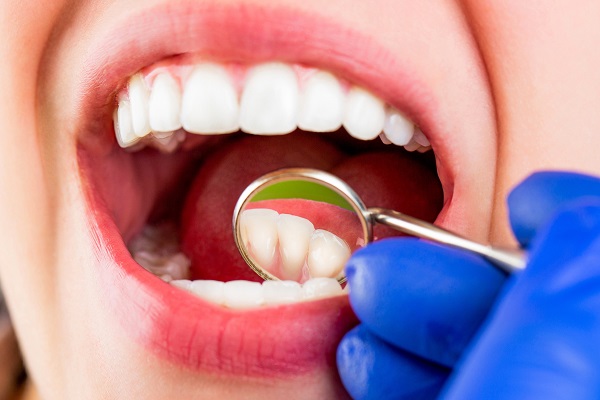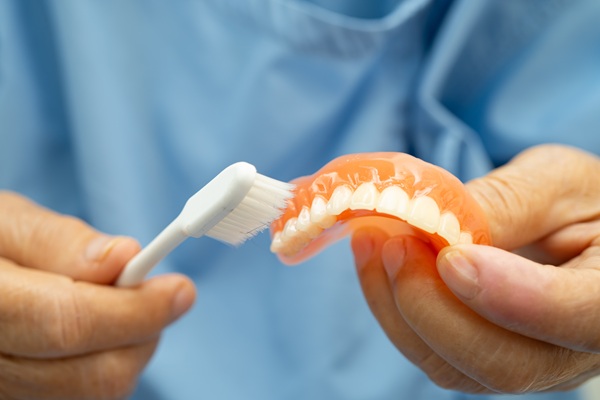How Preventive Dentistry Can Keep Cavities from Forming

The goal of preventive dentistry is to keep teeth and gums clean and healthy in order to reduce the risk of cavities and other oral health concerns developing. It is a good idea to have a full understanding of how preventive dentistry can protect your smile and what services a dentist may recommend for cavity prevention.
Preventive dentistry and cavities
General dentists typically offer a range of dental services, including diagnostics, preventive dentistry, and restorative care. However, the long-term focus is on cavity prevention, along with the prevention of other common oral health concerns such as gum disease, oral infections, and dental trauma.
What is preventive dentistry?
Preventive dentistry refers to the dental services that are performed to prevent oral health concerns, rather than treat issues that have already developed. This includes regular dental cleaning and check-up visits to detect any signs of a concern as early as possible, and to help prevent the build-up of plaque and tartar on the surface of teeth and along the gum line, which are common indicators that suggest cavities, gum disease, and other issues are more likely. Providing educational services to help patients protect their teeth between dental visits is also an important aspect of preventive dentistry.
What preventive dentistry services help with cavity prevention?
Cavity prevention is one of the main focuses of preventive dentistry. During each check-up visit, the dentist checks for any early signs of enamel decay. This includes discoloration of the tooth and a build-up of plaque and tartar. If the dentist detects any concerns, then they may provide a special fluoride treatment to strengthen the weakened enamel and reduce the risk of cavity formation. For some patients that are particularly vulnerable to cavities on the chewing surface of molars and premolars (especially children), the dentist may recommend dental sealants.
How often are dental cleaning and check-up visits needed?
Many patients who take care of their smile between dental visits (see below) only need a check-up and cleaning visit every four to six months to prevent cavities. More frequent visits may be necessary for patients that have a higher risk of developing cavities.
How can I reduce the risk of cavities between check-ups?
Preventive dentistry is important for cavity prevention. However, the majority of the work should take place at home between visits. The dentist can help the patient establish a consistent and quality oral care routine that can help prevent cavities. This should include brushing, flossing, and using a fluoride mouthwash as recommended. Certain foods and drinks (such as those high in sugar) should be limited as well to protect the enamel from acidic attacks and decay.
Schedule a visit to find out how preventive dentistry can benefit you
One of the primary goals here at our dental practice is to prevent oral health concerns before they are able to develop. We offer a range of diagnostic and preventive services, in addition to restorative care when oral health concerns do occur. Contact us today to schedule a consultation.
Request an appointment here: https://www.annarborpersonaltouchdentistry.com or call Shiva G. Rad, D.D.S. at (734) 436-0817 for an appointment in our Ann Arbor office.
Check out what others are saying about our dental services on Yelp: Preventive Dentistry in Ann Arbor, MI.
Recent Posts
Practicing preventive dentistry strategies can help you avoid serious dental problems. It can support your personal goals in keeping your gums and teeth healthy. Prevention is always better than going through treatments for serious dental problems. If you want to know how preventive dentistry can avoid the development of a serious oral problem, here are…
Maintaining healthy teeth and gums does more than ensure a strong and beautiful smile. Proper routine dental care also helps lower the risks of developing many serious diseases, including certain cancers, heart problems, and diabetes. However, patients who struggle with dental anxiety may fail to stick with a regular cleaning and checkup schedule. As a…
A deep teeth cleaning is not just a procedure needed after skipping dental visits. Instead, a deep teeth cleaning is designed to help combat periodontal disease and gum recession, both of which can lead to irreversible oral health problems. Of course, some individuals who skip routine maintenance from the dentist may need a deep teeth…
Dental exams are an important part of visiting a general dentist. The examination portion of the appointment is crucial in catching any warning signs that may indicate problems, such as cavities or gum disease. In particular, gum disease can be difficult to notice as it may present itself without any major warning signs. With that being…


